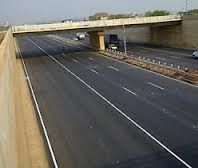
“If you have roads, you have wealth.” Chinese Minister of Transport, Mr. Weng Mengyong
The above statement sounds literally true, because national targets for growth and poverty reduction rely heavily on the effective road transport sector. The inability to access jobs and services because of unimproved or expensive road network is an important element of social exclusion which propels poverty.
A reliable and affordable road transport system forms part of the social safety net, enabling trade and employment opportunities in both urban and rural communities since it facilitates the movement of goods and services in all sector of the economy including: tourism, education, health and agriculture among others. Indeed it is a fact that road infrastructure plays a key role in the socioeconomic development of Ghana
An effective and efficient road infrastructure will reduce cost and comparative distance between trading partners; thereby increasing trade effectiveness and maximizing returns on existing industrial investment and production. It will as well make Ghanaian products competitive on the world market. For us, as a country, to achieve our full potentials, there is the need for an improved road transportation system through an effective and well integrated road network.
Many investments in infrastructure are built on the belief that they will lead to poverty reduction and income generation. This has entailed massive aid-financed projects in roads within the country. There is no doubt that various Governments have done a great deal of work in the road sector, yet, there is still more to be done. Road infrastructure is one of the sectors of the economy that has contributed tremendously to poverty reduction in this country.
There is general acceptance that economic infrastructure is critical for economic
growth and poverty reduction, given its pivotal role in improving competitiveness,
facilitating both domestic and international trade, and integration of the continent to the global economy.
Over the years, the efforts of government, has to some extent, bridged the development gap between the rural and urban communities; a number of roads are being constructed across the country to enhance the economic activities of the citizenry.
It would be recalled that some few years back, due to the terrible nature of road linking/network, the northern and southern part of the country used to take passengers two or more days to travel, to access tertiary education and to engage in some social and economic activities.
It was therefore a sign of relief when the two major roads from WA and Bolgatanga to the south were reconstructed. Students hardly find it difficult to travel to school in the southern part of the country; it has enhanced people’s comfort and convenience. This has contributed to the human resource development of the people in north Ghana.
Roads in Ghana are often the population means of transport to travel from place to place: to work, hospital, school, farm factory e.t.c and as such, government should not relent on its efforts to fix all road network within the country because, an improved road will reduce time on journey.
The basic of economics is trading. When people trade, they travel to different places to do business, the politicians will need the road to travel around the county to meet the public, and the security agencies will also use the road to check an area for safety of the citizenry.
Good roads in Ghana are very valuable assets. It has provided users with mobility required and giving government tax revenue due to the tremendous increase of car ownership and the flourishing car industry; this was confirmed by a Daily Graphic publication August 2, 2013 edition revealing an increase in car registration from 41,328 in 2012 to 49,537 in January to April 2013.
It is acknowledged that the development of the road sector has contributed to an increase in road transport related profession such as: insurance and logistics. Indicating a significant increase in employment level of the sector, insurance for car accidents is becoming more necessary as security for any unexpected calamity.
With government efforts in the road sector it also aimed at playing a significant role in the geographic distribution of economic growth because good roads connects business centers, region to region and countries to countries. It therefore attests to the fact that one can travel through the country within a day. It has become sufficiently apparent that there has been improvement particularly in areas relating to roads and Highways all over the country.
If all the roads awarded are completed in due time, It will translate into long term benefits in terms of poverty reduction.
It will marvel you to know how quickly the road sector agencies have advance and appreciated to the use of positive-edge technology in the form of foot bridges, combined cycle, pedestrian crossing, and the well laid-out graded traffic junction to reduce severity of accidents.
Bagbara Tanko is the Public Relations Officer- Ministry of Roads Highways